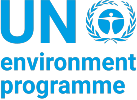In response to Resolution 2/7 from the second session (UNEP/EA.2/RES.7) of the United Nations Environment Assembly (UNEA) and reaffirmed in Resolution 4/7 from its fourth session (UNEP/EA.4/RES.7), the Global Waste Management Outlook offers an updated assessment of global waste management and an analysis of data concerning municipal solid waste management worldwide.
Jointly published with the International Solid Waste Association (ISWA), the report provides an update on global waste generation and the cost of waste and its management since 2018. The analysis uses life cycle assessments to explore what the world could gain or lose through continuing business-as-usual, adopting halfway measures, or committing fully to zero waste and circular economy societies. The report also evaluates three potential scenarios of municipal waste generation and management, examining their impacts on society, the environment, and the global economy. Furthermore, it presents potential strategies for waste reduction and enhanced management, following the waste hierarchy, to treat all waste materials as valuable resources.
Key findings
Municipal solid waste generation is predicted to grow from 2.1 billion tonnes in 2023 to 3.8 billion tonnes by 2050. In 2020, the global direct cost of waste management was an estimated USD 252 billion. When factoring in the hidden costs of pollution, poor health and climate change from poor waste disposal practices, the cost rises to USD 361 billion. Without urgent action on waste management, by 2050 this global annual cost could almost double to a staggering USD 640.3 billion.
The report’s modelling shows that getting waste under control by taking waste prevention and management measures could limit net annual costs by 2050 to USD 270.2 billion. However, projections show that a circular economy model, where waste generation and economic growth are decoupled by adopting waste avoidance, sustainable business practices, and full waste management, could in fact lead to a full net gain of USD 108.5 billion per year.
We need to act now in order to avoid the worst scenario. The report provides guidance and suggested actions for Multinational development banks, national governments, municipalities, producers and retailers, the waste management sector as well as citizens.






